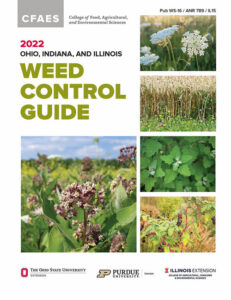Emerging Crops and Delayed PRE Herbicide Applications
Soil-residual herbicides are important components of integrated weed management programs. Labels of many single and multiple active ingredient products allow application before and after crop emergence, but other active ingredients can cause severe crop injury if applied to emerging crop plants. In fields where a PRE herbicide application has been delayed and corn or soybean are beginning to emerge, the following active ingredients (applied either alone or as a premix product) or commercial products should not be applied:
Corn
saflufenacil (Sharpen and Verdict,…






 …
… …
…